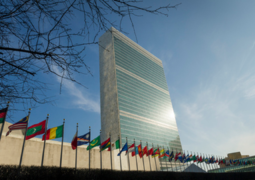
The implementation of the South African Development Community (SADC) GBV Model Law is imminent and consultations are taking place to ensure that it is fit for purpose and represents the views of a wide range of stakeholders. Yesterday, donors and the United Nations (UN) development agencies had their turn to make inputs on the draft of the model law, which will be presented for adoption during the SADC-PF plenary in December.
Giving context to the model law in her opening address, the Secretary General of the SADC Parliamentary Forum (SADC-PF) Ms Boemo Sekgoma stated that the consultations seek to ensure that best practices and the culture of human rights are included in its prescripts. The purpose of the model law is to act as a guideline for member nations when they draft legislation on GBV.
Ms Sekgoma said the consultation process would be incomplete without the involvement of SADC-PF’s development partners, such as Swedish International Development Agency and UN Development Agencies. She added: “We invested much in this law to promote the sexual and reproductive rights of women. This is to ensure that gender equality and the universal health coverage thrives in our region.”
This is in line with SADC-PF’s endeavour to promote a human rights culture and the rule of law among member states. It is also part of SADC-PF’s international commitment to sustainable development, and to the Beijing and African Union Declarations and other international conventions.
Dr Sara Thompson, a representative of Swedish International Development Agency, reiterated that GBV is a critical issue around the world because one out of five women globally is subjected to sexual violence. This discrimination could be eliminated, in her organisation’s view, if member states have gender responsive policies, programmes and projects.
To this effect, Sweden’s feminist policy of 2014 is a fundamental part of its Agenda for Change, because measures to combat GBV are tied to Sweden’s foreign policy. Sweden commends the SADC-PF this model law initiative because it believes parliaments are central in advancing reproductive health and in holding the executive accountable to their global commitments. Dr Thompson said: “There is a need for the domestication of the GBV Model Law to hold the executive accountable. As such parliaments must ensure that the domestication of this law is a matter of urgent priority.”
Ms Eva Jhala from Zambia and one of the main drafter of the model law stated that it seeks to set guidelines for SADC-PF member states when they develop policies and laws on GBV. Therefore, it is a soft law, in that it does not take a legislative approach in its design, but seeks to communicate clearly best practice to enhance the content of GBV laws in member states. It seeks to set the gold standard by drawing on the best international and regional practices that are part of the criminal justice systems of member states.
Stating the reasons for the genesis of this model law, she underscored the fact that the current GBV laws of many member states are fragmented and unbudgeted. They also sometimes lack coherence or a systematic approach, or may simply not exist at all. In addition, sometimes the GBV laws in member states make no pronouncement on the allocation of mandate as to who should do what, at what stage within the chain of the justice system. Most regrettably, she pointed out, the existing GBV laws in various member states “are vague and thus making it difficult for the courts to interpret them for purposes of prosecution”. A lack of resources is another challenge.
The UN Population Fund’s Dr Bannet Ndyanabangi said the model is comprehensive and they support its adoption. “We want an Africa that protects women reproductive rights and that seeks to eradicate all forms of gender inequality and GBV.”
Abel Mputing
22 September 2021

